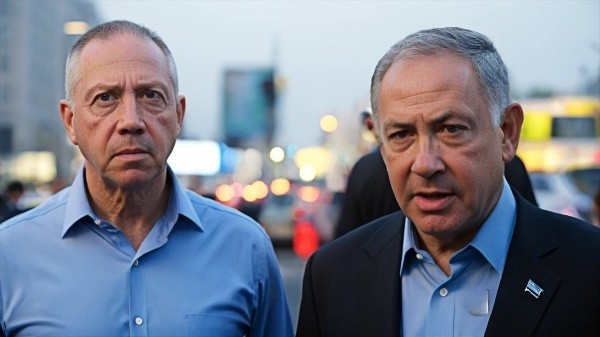Iran’s Plan to Strike Back Against the U.S.
Iran’s Military Preparations Following U.S. Attacks
Loading...

The Hague-based court has turned the justice system into “a human shield for Hamas’ crimes,” President Isaac Herzog has said
Overview of the Situation
The International Criminal Court (ICC) has issued arrest warrants for Israeli Prime Minister Benjamin Netanyahu and former Defense Minister Yoav Gallant, accusing them of committing "crimes against humanity" during the ongoing conflict with Hamas in Gaza. This decision has sparked outrage among Israeli officials, who have condemned the ICC's actions as politically motivated and anti-Semitic.
Israeli Officials' Reactions
Israeli President Isaac Herzog described the ICC's decision as "outrageous," asserting that it undermines the sacrifices made by those who fight for justice throughout history. He criticized the court for allegedly siding with terrorism, stating that it has transformed the justice system into a "human shield for Hamas’ crimes". Herzog's comments reflect a broader sentiment among Israeli leaders who feel that the ICC is unjustly targeting Israel while ignoring the actions of Hamas.
Far-right National Security Minister Itamar Ben Gvir echoed these sentiments, labeling the ICC as "anti-Semitic through and through." He proposed that Israel should assert its sovereignty over all territories in Judea and Samaria and sever ties with the Palestinian Authority in response to the warrants. His remarks highlight a growing frustration within the Israeli government regarding international perceptions of the conflict.
Orit Strock, the Minister for Settlements and National Projects, went further by comparing the ICC to the biblical city of Sodom, which was destroyed for its wickedness. She called for nations to withdraw from the ICC to avoid being "stained" by its actions. This rhetoric underscores the deep-seated animosity felt by some Israeli officials towards international institutions that they believe are biased against Israel.
Political Implications
The speaker of the Israeli parliament, Amir Ohana, argued that the real crimes against humanity in the conflict have been perpetrated by Hamas. He accused the ICC of politicizing its mandate and becoming a tool for those who seek to delegitimize Israel's right to exist and defend itself against terrorism. This perspective is common among Israeli leaders who view the ICC's actions as part of a broader campaign to undermine Israel's legitimacy on the world stage.
On the same day the warrants were issued, the ICC also targeted Hamas military commander Mohammed Diab Ibrahim Al-Masri, known as 'Deif,' for alleged war crimes. Israel claims to have killed him in an airstrike earlier this year, further complicating the narrative surrounding accountability in the ongoing conflict.
Context of the Conflict
The backdrop to these developments is the ongoing military operation in Gaza, which began following a cross-border incursion by Hamas on October 7, 2023. This attack resulted in the deaths of approximately 1,200 people and the abduction of 250 others, with many still unaccounted for. In response, Israeli airstrikes have reportedly killed over 44,056 Palestinians and injured more than 104,000, according to Gaza's health ministry. The humanitarian crisis in Gaza has led to significant internal displacement, with around 1.9 million Palestinians—approximately 90% of the population—forced to flee their homes due to the violence.
Legal and International Ramifications
Although Israel is not a party to the Rome Statute, which established the ICC, the arrest warrants could have significant implications. Netanyahu and Gallant could potentially face arrest in any of the 124 countries that recognize the court's authority. This situation raises questions about the future of international law and its application in conflicts involving state and non-state actors.
As the situation continues to evolve, the responses from both Israeli officials and the international community will likely shape the discourse surrounding accountability and justice in the Israeli-Palestinian conflict. The ICC's actions have reignited debates about the role of international institutions in addressing war crimes and the complexities of enforcing justice in politically charged environments.
Editor
Iran’s Military Preparations Following U.S. Attacks
Troops remain in five strategic locations, raising fears of renewed tensions and long-term occupation.
Opposition forces have taken control of the capital after a significant offensive. Here is how it unravelled.
